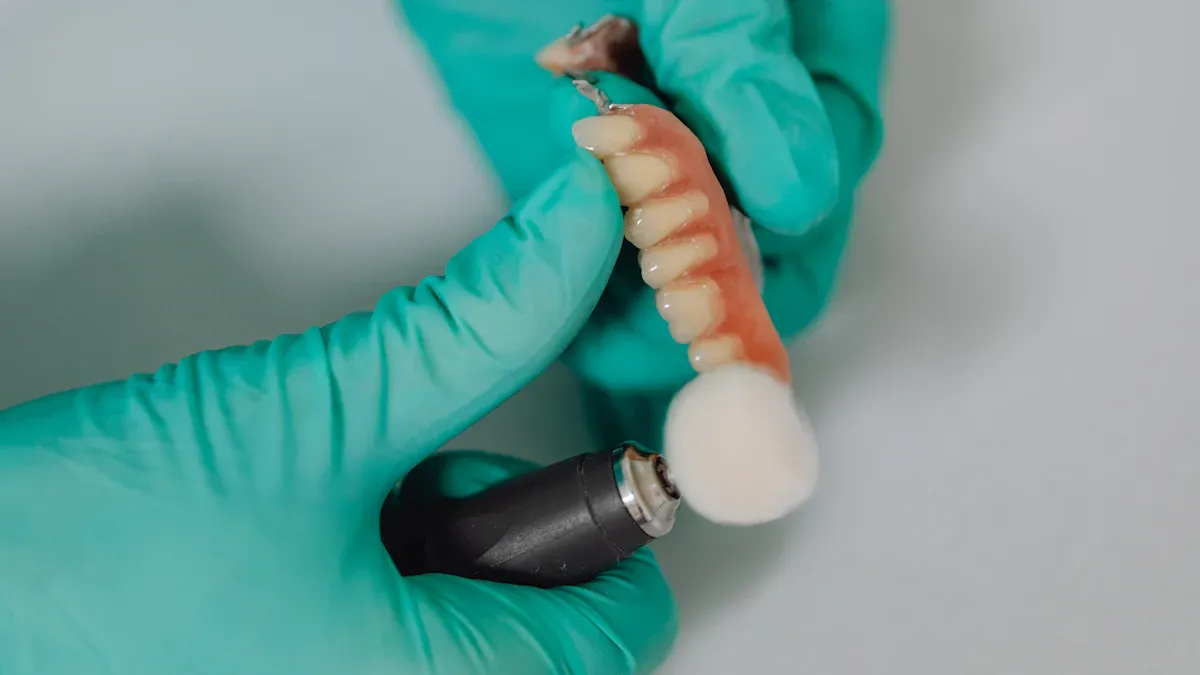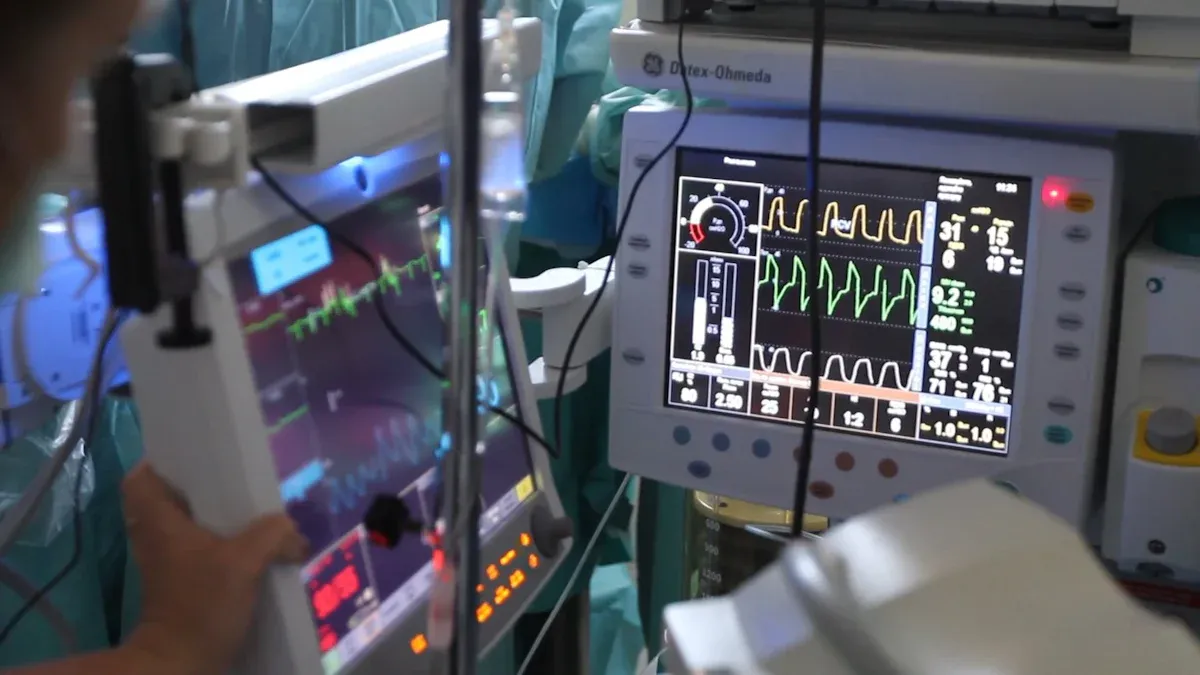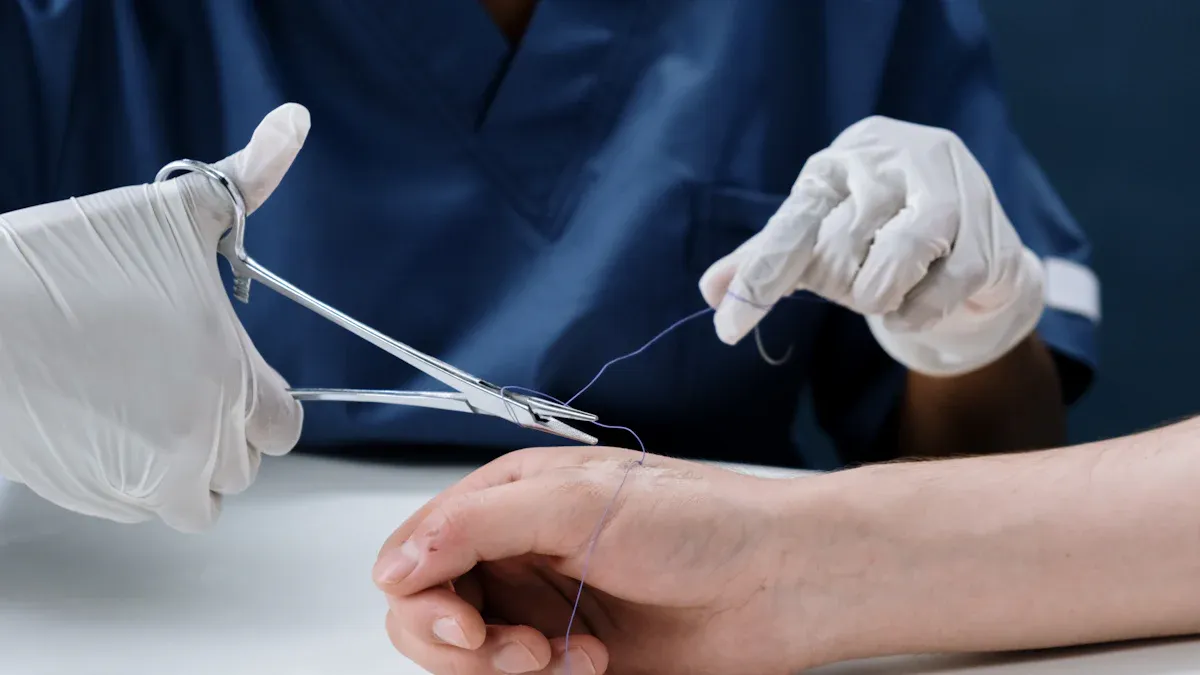Understanding Nitinol Tubing: A Key Component in Cardiovascular Stents

Nitinol tubing, specifically the cardiovascular stent nitinol tubing 0.5mm OD, is made from nickel and titanium. It is special because it can return to its shape after bending. This makes it very useful in heart devices. It is especially important in stents, which help blood flow in narrow or damaged vessels. Its flexibility lets stents adjust to moving blood vessels. This lowers problems and helps people heal faster.
New research shows that nitinol tubing, including the cardiovascular stent nitinol tubing 0.5mm OD, works better in medicine. It improves recovery by 20%, reduces pain faster, and causes fewer problems than older materials. These features make it great for small surgeries on the heart and blood vessels.
AccuPath is a leader in making nitinol tubing with high accuracy. They offer special options like the cardiovascular stent nitinol tubing 0.5mm OD, which is only 0.5mm wide. Their skill ensures these medical parts are safe and reliable for saving lives.
Key Takeaways
Nitinol tubing is special because it remembers its shape. It bends but returns to its original form, making it great for heart stents.
Nitinol tubing can stretch a lot without breaking. This makes it strong and useful in blood vessels that move.
Nitinol is safe for the body and doesn’t cause bad reactions. This makes it a trusted material for medical implants.
AccuPath makes top-quality nitinol tubing. Their products are safe and reliable for important medical devices.
Nitinol tubing helps patients heal faster by 20%. It also reduces pain and lowers problems compared to older materials.
Unique Properties of Nitinol Tubing

Shape memory and its importance in cardiovascular stents
Nitinol tubing is special because it remembers its shape. If bent or squished, it goes back to its original form when heated. This is very helpful for stents used in blood vessels. Stents can be made small to fit into tight spaces. Once inside, they expand to the right size. This helps blood flow better and avoids problems.
Studies show shape memory makes stents work better. Stents can adjust to fit each person's body. This makes treatments more comfortable and successful. Doctors use a test called Bend Free Recovery (BFR) to check nitinol's shape memory. This test proves nitinol tubing works well in tough medical situations.
Superelasticity for flexibility and durability in blood vessels
Nitinol tubing is also super stretchy and strong. It can stretch a lot and still go back to its shape. This is important because blood vessels are always moving and changing. Nitinol tubing handles this movement without breaking.
Tests show nitinol tubing can stretch up to 400% in a small artery model. It stays strong and flexible even in hard conditions. Balloon-expandable stents change shape more, up to 42%, while nitinol tubing changes only 2%. This makes nitinol tubing better for devices in moving blood vessels.
Benefits of nitinol's superelasticity:
Works well under pressure.
Helps blood vessels stay flexible.
Lasts a long time without wearing out.
Biocompatibility and corrosion resistance for safe implantation
Safety is very important for medical implants. Nitinol tubing is safe because it works well with the human body. It doesn’t cause bad reactions. It also resists rust, even in wet conditions like inside the body.
Long-term studies show nitinol tubing stays strong over time. This makes it great for tools like guidewires and catheters. Its rust resistance keeps it working safely for years. This means fewer surgeries to replace it.
Property | What It Does |
|---|---|
Biocompatibility | Safe to touch human tissue, no bad reactions. |
Corrosion Resistance | Stays strong in wet conditions, like inside the body. |
Long-term Integrity | Works well for a long time, proven by studies. |
Applications | Used in tools like guidewires and catheters because of these features. |
Nitinol tubing is a top choice for medical devices. Its safety and strength make it perfect for life-saving tools. It works well even in tough conditions inside the body.
Role of Nitinol Tubing in Cardiovascular Stents

Making stents flexible and adaptable in moving blood vessels
Nitinol tubing helps stents stay flexible and adjust easily. Its special traits, like shape memory and stretchiness, make it perfect for blood vessels. Blood vessels move and change as blood flows. Nitinol makes sure stents keep their shape and work well.
Shape memory lets stents return to their shape after being squeezed.
Stretchiness allows the tubing to bend and stretch without breaking.
It resists wear and tear, so fewer repairs are needed.
Tests show nitinol tubing stays strong under pressure. This makes it great for tricky blood vessel paths. With nitinol, stents last longer and work better for patients.
Why nitinol tubing is great for small heart surgeries
Small heart surgeries need materials that are strong and bendable. Nitinol tubing is both. It can stretch and shrink without breaking, making it great for stents. Patients heal faster, feel less pain, and have fewer problems with nitinol.
Nitinol's stretchiness helps stents fit through tiny cuts and narrow paths. Once in place, it opens up to support the blood vessel. This improves blood flow and avoids big surgeries, making it safer and easier.
Doctors like nitinol because it’s safe for the body. It doesn’t cause bad reactions and doesn’t rust. This makes it a trusted choice for life-saving tools.
AccuPath’s role in making nitinol tubing for stents
AccuPath is a leader in making high-quality nitinol tubing. They create tubing, like the 0.5mm wide stent tubing, with great care. Their methods make sure the tubing is strong and flexible.
They melt the nickel-titanium mix in a vacuum to keep it pure.
They refine the mix to make it stronger and better.
Special treatments make the tubing tough and bendable.
Laser cutting ensures the tubing fits medical needs perfectly.
AccuPath’s focus on quality makes their tubing work well in real-life use. Tests show it bends better than stainless steel. This makes it ideal for custom stents that fit each person’s body. By making stents just right, AccuPath helps patients heal better and faster.
Broader Uses of Nitinol Tubing in Heart Devices
Helping guidewires and catheters move through blood vessels
Nitinol tubing is important for guidewires and catheters. It bends easily and moves precisely. These tools travel through tricky blood vessel paths without causing harm. Nitinol's stretchiness lets guidewires bend without pressing too hard. This lowers the chance of hurting vessels during treatments like catheter ablation. Its ability to return to shape keeps it working well, giving doctors better control.
Tests show nitinol guidewires work better than older materials. They lead to fewer problems and higher success rates. This makes nitinol tubing a key part of catheters used in small surgeries. It helps patients heal safely and quickly.
Used in fixing and replacing heart valves
Heart valve repairs use nitinol tubing because it’s strong and doesn’t rust. Studies prove nitinol stays tough in body fluids, making it great for heart valve frames. These parts fit the heart’s shape perfectly and last a long time.
Research shows nitinol is safe for heart devices. It doesn’t cause bad reactions and adjusts to the heart’s movements. This makes it a top choice for valve repairs, helping patients recover better and avoid extra surgeries.
Helping with other small heart surgeries
Nitinol tubing is also used in stents, plugs, and sensors. Its special traits help these tools fit blood vessels and work well over time. Nitinol’s stretchiness and shape memory make it perfect for small surgeries.
Tests like the MISAGO 1 trial show nitinol stents work better than older ones. Patients heal faster and have fewer problems. Nitinol tubing also allows custom designs for each patient. This improves care and makes treatments more accurate.
Use | Features | Benefits for Heart Care |
|---|---|---|
Stents | Stretches and returns to shape | Fewer big surgeries, better results |
Guidewires and Catheters | Bends easily and moves precisely | Less damage to vessels, stays strong |
Blood Flow Tools | Fits vessel shapes | Helps blood flow better, lasts longer |
Nitinol tubing is changing heart care. It makes surgeries safer and helps patients recover faster.
Future of Nitinol Tubing in Medical Technology
Improvements in nitinol alloys for better medical use
Nitinol alloys are changing how medical tools work. They have special features like shape memory and stretchiness. These make them great for stents and bone implants. Nitinol adjusts to moving parts, staying strong and accurate during surgeries.
Recent research shows nitinol is improving medical implants. It helps create better tools for healthcare. As more people need small surgeries, scientists are making nitinol even stronger and more useful.
Experts predict nitinol tubing will grow in demand. By 2032, its market size may reach $14.7 billion. This growth comes from more people needing advanced medical tools and care for long-term illnesses.
Year | Market Size Prediction (USD Billion) | Growth Rate (%) |
|---|---|---|
2023 | 8.2 | - |
2032 | 14.7 | 6.7 |
New ways to make nitinol tubing for medical tools
Making nitinol tubing is getting better to meet medical needs. AccuPath uses cool methods like freezing machining for accuracy. These methods keep nitinol stretchy, safe for the body, and strong for blood vessel tools.
AccuPath makes tubing that fits specific medical needs. They offer popular sizes and flexible orders. But making nitinol tubing can be tricky. Nickel and titanium prices change, making costs higher. Even with these challenges, new ideas improve nitinol tubing quality and supply.
AccuPath’s plans for nitinol tubing in healthcare
AccuPath wants nitinol tubing to lead in medical technology. Their precise designs help solve healthcare problems and improve patient care. Nitinol tubing will be key in small surgeries, robot-assisted operations, and medicine delivery systems.
AccuPath’s research is opening new doors for nitinol tubing. Flexible parts for robotic tools make surgeries more accurate. Nitinol’s ability to adapt helps create advanced medical devices. AccuPath aims to push nitinol’s limits to improve healthcare worldwide.
Nitinol tubing is special because of its unique features. It can remember its shape, stretch a lot, and is safe for the body. These qualities make it great for stents, guidewires, and tools that help blood flow and heart health.
Benefit | What It Does |
|---|---|
Shape Memory | Goes back to its shape when heated, ideal for implants. |
Superelasticity | Stretches and returns to shape, making it strong for devices. |
Biocompatibility | Safe for the body, with a layer that reduces nickel exposure. |
New improvements in nitinol materials and how they are made will make medical tools even better. AccuPath leads in creating accurate tubing for life-saving devices.
Nitinol tubing is changing heart care, making treatments safer and faster.
FAQ
What makes nitinol tubing special compared to other materials?
Nitinol tubing is unique because of its shape memory and superelasticity. It can return to its shape after being bent or stretched. It also stretches without breaking, making it very strong. Its biocompatibility means it’s safe for use inside the body. This makes it perfect for medical tools like stents.
How does nitinol tubing help cardiovascular stents?
Nitinol tubing makes stents flexible and easy to adjust. Stents can move with blood vessels while staying strong. This flexibility lowers risks and helps patients recover faster. It’s especially helpful in small surgeries that don’t need big cuts.
Tip: Nitinol stents work well in arteries that move a lot.
Is nitinol tubing safe for implants?
Yes, nitinol tubing is very safe. It works well with the body and doesn’t cause bad reactions. It also resists rust, even in wet places like blood vessels. These features make it a trusted choice for implants that last a long time.
What are common uses for nitinol tubing in medicine?
Nitinol tubing is used in stents, guidewires, catheters, and heart valve frames. It bends easily and stays strong, making it great for narrow blood vessels. Doctors also use it in small surgeries to improve accuracy and help patients heal better.
Why is AccuPath a top maker of nitinol tubing?
AccuPath is known for making precise nitinol tubing using advanced methods. They use lasers and special treatments to make tubing strong and flexible. Their products meet strict medical rules, making them reliable for life-saving tools like stents.
Note: AccuPath’s ability to make custom sizes, like 0.5mm OD, makes them stand out.
See Also
Nitinol Tubing's Impact on the Future of Medicine
The Manufacturing Process of Nitinol Tubing for Healthcare
The Importance of Nitinol Tubing in Modern Medicine
Nitinol Tubing Uses in Innovative Healthcare Technologies
The Necessity of Nitinol Tubing in Minimally Invasive Surgery

